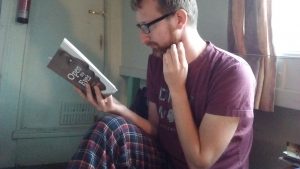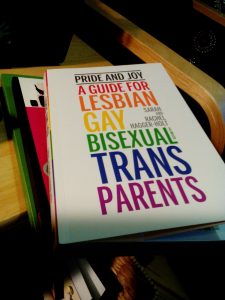Before reading Amy Brown’s book, I became aware of a highly critical review of it, written by someone who admitted to not having read it. She felt pretty strongly that the world doesn’t need any more books exhorting women to breastfeed.
Having actually read it myself, I get the feeling that Amy Brown would agree with that sentiment; and while Breastfeeding Uncovered: Who Really Decides How We Feed Our Babies comprehensively demonstrates the importance of breastfeeding for babies, mothers, and society, this is not a book telling mothers that they must breastfeed, but rather one that explains the complex range of reasons why so many of us don’t. It’s not even a book that is explicitly aimed at mothers, since it isn’t a how-to-breastfeed manual; and it is likely to be useful to a wide range of readers including new fathers, grandmothers, health professionals, and anyone supporting a breastfeeding mother. It also might be a helpful read for mothers who have stopped breastfeeding and perhaps have mixed feelings about that decision. And one final demographic: I’d recommend this to policy makers, politicians, budget holders, and anyone involved in public health promotion – these are the people who can really use this information to protect and support breastfeeding in a society that just doesn’t seem to get it.
Breastfeeding Uncovered addresses social, cultural and political issues; examines the impact of transition to motherhood; and talks about the reality of breastfeeding for modern families. There are some lovely clear explanations, for example the SIDS statistics in relation to bedsharing; and I found myself trying to memorise certain facts and phrases for use in my own work.
Amy Brown’s voice comes across very clearly, and initially I wasn’t sure if I would find the occasional sarcasm a bit annoying. But she uses it to make such good points that it’s pretty hard to get annoyed. She really just tells it like it is.
If I had to find gaps in this thorough work, I would like to see a little more mention of highly qualified volunteer Breastfeeding Counsellors such as those trained by NCT and ABM, who occupy the space between Lactation Consultants and Peer Supporters. There is also a vast network of support now available on social media and websites like Netmums, but perhaps that’s scope for the next book.
The real strength of Breastfeeding Uncovered is its firm grounding in an absolute wealth of evidence, both from the author’s own research and from many other reputable sources. Haters gonna hate, but they can’t actually argue that Amy Brown is wrong, or that she doesn’t understand the complexities of infant feeding, or that she is exhorting mothers to do things her way; to do so would indicate that they too have not read the book.
You can get a copy of Breastfeeding Uncovered here, with a 10% discount if you use the code SPROGCAST at the checkout.
Disclosure: Pinter & Martin sent me a free review copy of this book.


